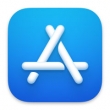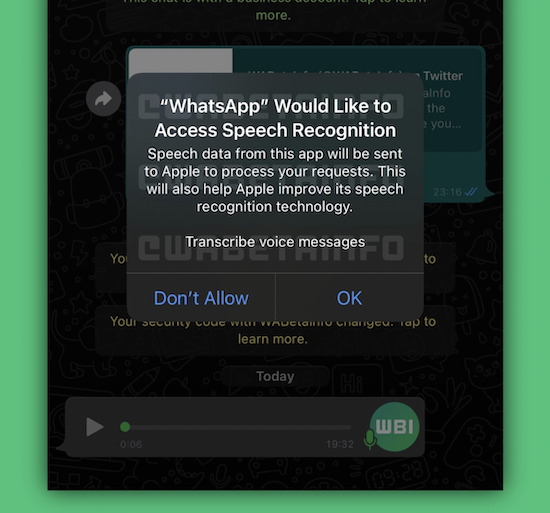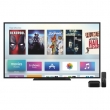 Gestern fiel das erste Urteil im Gerichtsprozess zwischen Apple und den Fortnite-Entwicklern von Epic Games. Unter anderem sieht dieses vor, dass es Apple künftig den Entwicklern wieder gestatten muss, auch andere Zahlungsmethode für In-App Käufe zu verwenden und sie damit nicht mehr an Apples In-App Purchase System gebunden sind. Apple hat nun 90 Tage Zeit, diese Anforderung im AppStore umzusetzen. Auf der anderen Seite stellte die zuständige Richterin aber auch fest, dass Apple keine Monopolstellung innehabe und dass Epic Games gegen die AppStore-Richtlinien verstoßen hat, weswegen man Nachzahlungen in Millionenhöhe für In-App Käufe, die am In-App-System vorbei durchgeführt wurden an Apple bezahlen muss.
Gestern fiel das erste Urteil im Gerichtsprozess zwischen Apple und den Fortnite-Entwicklern von Epic Games. Unter anderem sieht dieses vor, dass es Apple künftig den Entwicklern wieder gestatten muss, auch andere Zahlungsmethode für In-App Käufe zu verwenden und sie damit nicht mehr an Apples In-App Purchase System gebunden sind. Apple hat nun 90 Tage Zeit, diese Anforderung im AppStore umzusetzen. Auf der anderen Seite stellte die zuständige Richterin aber auch fest, dass Apple keine Monopolstellung innehabe und dass Epic Games gegen die AppStore-Richtlinien verstoßen hat, weswegen man Nachzahlungen in Millionenhöhe für In-App Käufe, die am In-App-System vorbei durchgeführt wurden an Apple bezahlen muss.
Insgesamt konnte Apple 9 der 10 verhandelten Punkte für sich entscheiden. Bei dem wichtigen Punkt der künftigen Abwicklung von In-App Käufen und deren Bezahlung ist zudem noch unklar, wie genau die Auswirkungen auf den AppStore aussehen werden. In den Stunden nach dem Urteilsspruch haben sich inzwischen natürlich verschiedene Beteiligte und Beobachter zu Wort gemeldet und ihre Meinung dazu kundgetan. Hier eine kurze Zusammenfassung der Stimmen.
Apple
In einem Statement, die an verschiedene Pressevertreter ging, erklärt Apples Hausjuristrin Katherine Adams dass die Entscheidung ein großer Sieg für Apple sei. Vor allem die Entscheidung, dass Apple keine Monopolstellung besitze sei dabei hervorzuheben, da dies zugleich eine Legitimierung des Geschäftsmodells des AppStore darstellt. Das komplette Statement im Wortlaut:
We are very pleased with the Court’s ruling and we consider this a huge win for Apple. This decision validates that Apple’s “success is not illegal,” as the judge said. As the Court found “both Apple and third-party developers like Epic Games have symbiotically benefited from the ever-increasing innovation and growth in the iOS ecosystem.”
The Court has confirmed, after reviewing evidence from a 16-day trial, that Apple is not a monopolist in any relevant market and that its agreements with app developers are legal under the antitrust laws. Let me repeat that: the Court found that Apple is not a monopolist under “either federal or state antitrust laws.”
We are still analyzing the decision which is 180 pages long but the headline is that Apple’s App Store business model has been validated. The Court correctly rejected Epic’s “artificial” view of the competitive environment in which Apple operates and determined that “developers like Epic Games have benefited from Apple’s development and cultivation of the iOS ecosystem, including its devices and underlying software.” Underlying the App Store business is a framework, including App Review, curation and protection of the security and privacy of our users. The Court has ruled that this framework is lawful and Apple was justified in terminating Epic’s status as a developer on the App Store. Apple’s rigorous process for app review protects consumers. As the Court observed, “security and privacy have remained a competitive differentiator for Apple.” The Court agreed, and I quote, that “by providing these protections, Apple provides a safe and trusted user experience on iOS, which encourages both users and developers to transact freely and is mutually beneficial.” Importantly, the Court also recognized the value of Apple’s ever-increasing innovation and growth of the iOS ecosystem.
In short, this is a resounding victory and underscores the merit of our business both as an economic and competitive engine.
Apple habe sich laut Adams noch nicht entschieden, ob man Teile des Urteils anfechten werde. Man sei noch dabei, das 185 Seiten umfassende Urteil detailliert auszuwerten.
"Fortnite-Prozess: Zusammenfassung der Reaktionen auf den Urteilsspruch" vollständig lesen
 Wie angekündigt haben die Fortnite-Entwickler von Epic Games nun offiziell angekündigt, gegen das am vergangenen Freitag in der AppStore-Auseinandersetzung mit Apple gefällte Urteil in Berufung zu gehen. Zur Erinnerung: Am vergangenen Freitag hatte die zuständige Richterin Yvonne Gonzalez Rogers in 9 der 10 verhandelten Punkte der Auseinandersetzung zugunsten von Apple entschieden. Bei dem wichtigen Punkt der künftigen Abwicklung von In-App Käufen und deren Bezahlung ist zudem noch unklar, wie genau die Auswirkungen auf den AppStore aussehen werden. Hier hatte die Richterin verfügt, dass es Apple den Entwicklern gestatten muss, auch alternative Zahlungssysteme zu Apples hauseigenem In-App System nutzen zu dürfen.
Wie angekündigt haben die Fortnite-Entwickler von Epic Games nun offiziell angekündigt, gegen das am vergangenen Freitag in der AppStore-Auseinandersetzung mit Apple gefällte Urteil in Berufung zu gehen. Zur Erinnerung: Am vergangenen Freitag hatte die zuständige Richterin Yvonne Gonzalez Rogers in 9 der 10 verhandelten Punkte der Auseinandersetzung zugunsten von Apple entschieden. Bei dem wichtigen Punkt der künftigen Abwicklung von In-App Käufen und deren Bezahlung ist zudem noch unklar, wie genau die Auswirkungen auf den AppStore aussehen werden. Hier hatte die Richterin verfügt, dass es Apple den Entwicklern gestatten muss, auch alternative Zahlungssysteme zu Apples hauseigenem In-App System nutzen zu dürfen. Während man über das Thema Datenschutz im Zusammenhang mit WhatsApp sicherlich streiten kann, kann man den Facebook-Entwicklern nicht vorwerfen, dass sie den Messenger nicht weiterentwickeln würden. Die Kollegen von
Während man über das Thema Datenschutz im Zusammenhang mit WhatsApp sicherlich streiten kann, kann man den Facebook-Entwicklern nicht vorwerfen, dass sie den Messenger nicht weiterentwickeln würden. Die Kollegen von 
 Am kommenden Dienstag steht uns das lang erwartete diesjährige iPhone-Event ins Haus. Am Wochenende vor der Veranstaltung haben sich nun die in der Regel gut informierten Kollegen von
Am kommenden Dienstag steht uns das lang erwartete diesjährige iPhone-Event ins Haus. Am Wochenende vor der Veranstaltung haben sich nun die in der Regel gut informierten Kollegen von  Ich hatte schon mehrfach erwähnt, dass ich eine Stick-Variante des Apple TV für eine ideale Ergänzung von Apples TV-Hardware halten würde. Diesen könnte man recht praktisch dann auch mit in den Urlaub oder zu Freunden nehmen, um auch dort auf die eigenen Inhalte zuzugreifen. Auf der anderen Seite könnte Apple damit meiner Meinung auch die Nutzerbasis von Apple TV+ erweitern, indem man eine günstige Möglichkeit bietet, die Inhalte zu streamen. Offenbar existierten entsprechende Pläne auch bei Apple, wie aus einem aktuellen umfassenden Hintergrundbericht der Kollegen von
Ich hatte schon mehrfach erwähnt, dass ich eine Stick-Variante des Apple TV für eine ideale Ergänzung von Apples TV-Hardware halten würde. Diesen könnte man recht praktisch dann auch mit in den Urlaub oder zu Freunden nehmen, um auch dort auf die eigenen Inhalte zuzugreifen. Auf der anderen Seite könnte Apple damit meiner Meinung auch die Nutzerbasis von Apple TV+ erweitern, indem man eine günstige Möglichkeit bietet, die Inhalte zu streamen. Offenbar existierten entsprechende Pläne auch bei Apple, wie aus einem aktuellen umfassenden Hintergrundbericht der Kollegen von  Apple hat mal wieder diverse Ankündigungen zu kommenden Apple TV+ Inhalten
Apple hat mal wieder diverse Ankündigungen zu kommenden Apple TV+ Inhalten 
 Apple hat zusätzlich zu seinem bereits liebgewonnenen "Movie Mittwoch" nun auch den "Blockbuster fürs Wochenende" ins Leben gerufen. Dabei wird jedes Wochenende ein ausgewählter Film aus dem iTunes-Sortiment für 24 Stunden zum Sonderpreis von nur € 0,99 in HD-Qualität zum Leihen angeboten. In dieser Woche handelt es sich um den Action-Blockbuster
Apple hat zusätzlich zu seinem bereits liebgewonnenen "Movie Mittwoch" nun auch den "Blockbuster fürs Wochenende" ins Leben gerufen. Dabei wird jedes Wochenende ein ausgewählter Film aus dem iTunes-Sortiment für 24 Stunden zum Sonderpreis von nur € 0,99 in HD-Qualität zum Leihen angeboten. In dieser Woche handelt es sich um den Action-Blockbuster 
